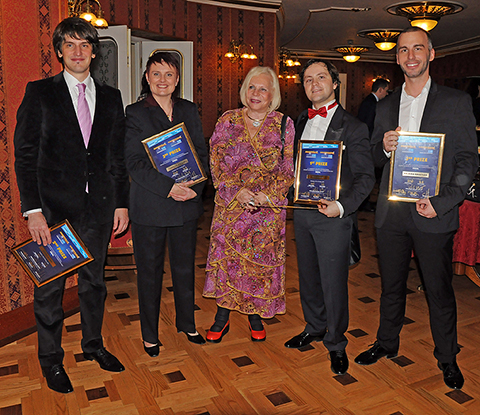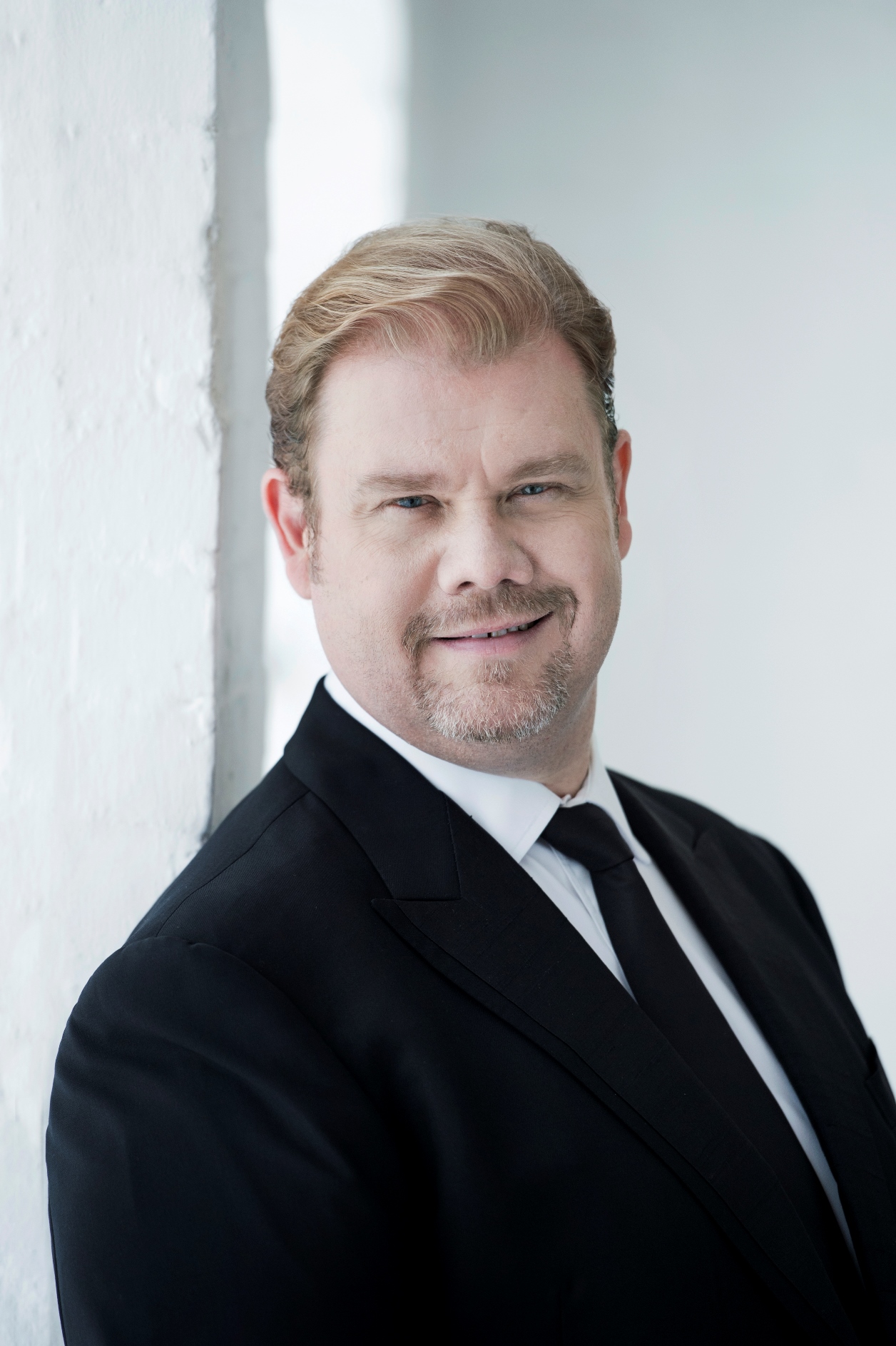Sydney conductor wins place in international competition
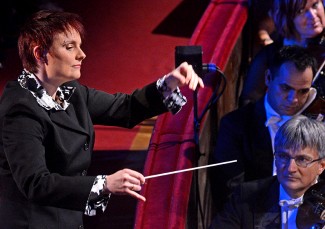 Carolyn Watson conducts the Budapest Operetta Theatre Orchestra
Carolyn Watson conducts the Budapest Operetta Theatre Orchestra
Sydney conductor Carolyn Watson is on her travels as part of the Churchill Fellowship she won earlier this year. She’s spent the last weeks in Budapest competing in the 2nd Emmerich KálmánInternational Operetta-Musical Conducting Competition presented by the Budapest Operetta and Musical Theatre, where she was placed third, winning around AUD 10,000 in prizes.
The competition aims to preserve and develop the heritage of Hungarian operetta and music theatre, presenting the works of the masters of this genre and their successors. The search attracts competitors from around the world with preliminaries held in Austria, Russia, Romania, Italy, Japan, Australia, USA and Hungary. The semi-finals and finals were held in the Budapest Operetta and Musical Theatre and broadcast live on Duna Television, the Hungarian national broadcaster.
Carolyn Watson’s prizes included €2000 in cash, the Debrecen Kodály Philharmony’s special award in the form of an invitation to conduct the Kodály Philharmonic Orchestra and the Kodály Choir in their 2012/13 season and the Herend Porcelain Manufactory’s special award, a Herend vase. The Kodály Philharmonic Orchestra Choir is one of Hungary’s only two professional choruses (the other is the radio chorus).
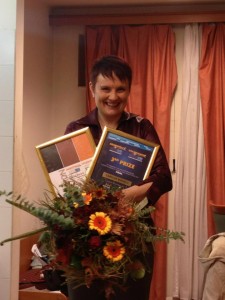
For the finals, Watson conducted the Orchestra of the Budapest Operetta Theatre, competing with three other conductors from Hungary, France and Russia. She says “We were chosen from twelve semi-finalists – the semis were held in Budapest, also at the Operetta Theatre in September. I literally had to dash to the airport from the podium in the Verbrugghen Hall after a Conservatorium High School concert and was whisked away at the other end to star in a brief movie they made about all the contestants. Nothing like trying to remember how to speak Hungarian when jetlagged….”
The whole competition was to commemorate the 130th birth anniversary of Emmerich (Imre) Kálmán (1882 – 1953), Hungarian born composer of numerous popular operettas which have entered the repertoire beyond Hungary. He studied at the National Hungarian Royal Academy of Music (then the Budapest Academy of Music), where he was a contemporary of Béla Bartók and Zoltán Kodály. His compositions include The Gypsy Princess (Der Zigeunerprimas), Princess Mariza (Gräfin Mariza )and The Gay Hussars (Tatárjárás – Ein Herbstmanöver).
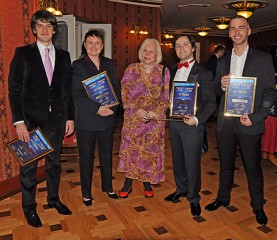
Yvonne Kalman, centre, with the finalists. And there’s a special Sydney connection – Kálmán’s daughter Yvonne, lived in Sydney for 9 years! She was on hand to watch the competition and present the prizes!
Watch Carolyn Watson conducting an entertaining excerpt from Princess Mariza
http://www.youtube.com/watch?v=G6aW417vbJA

